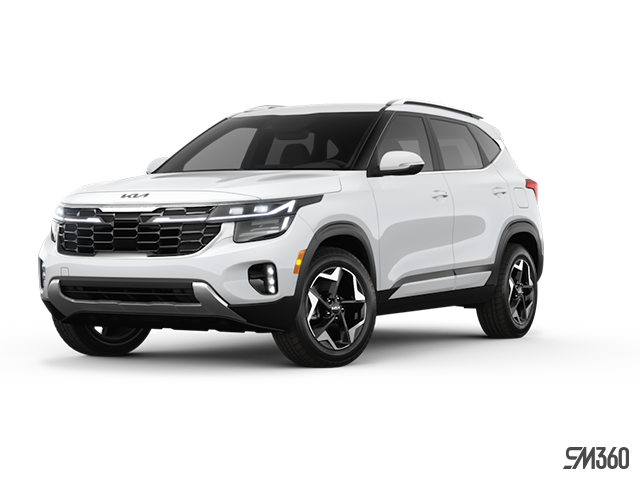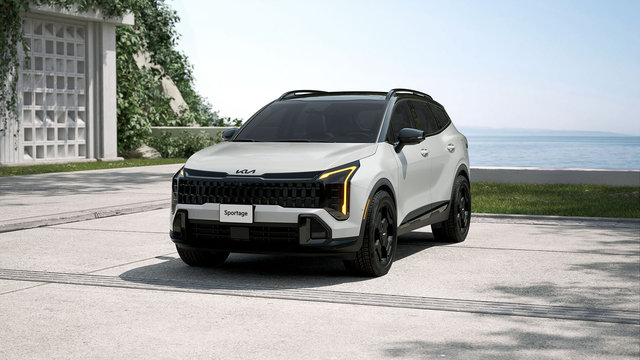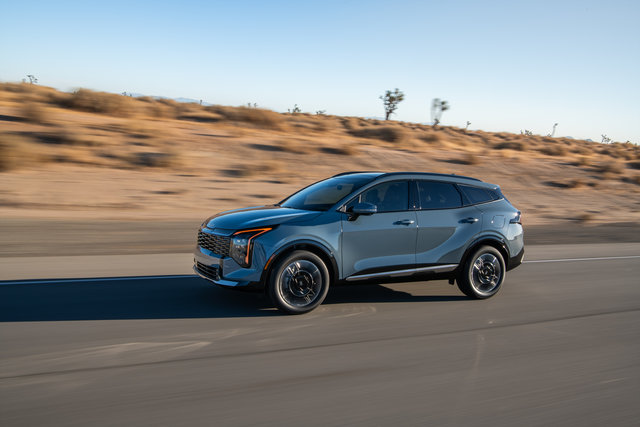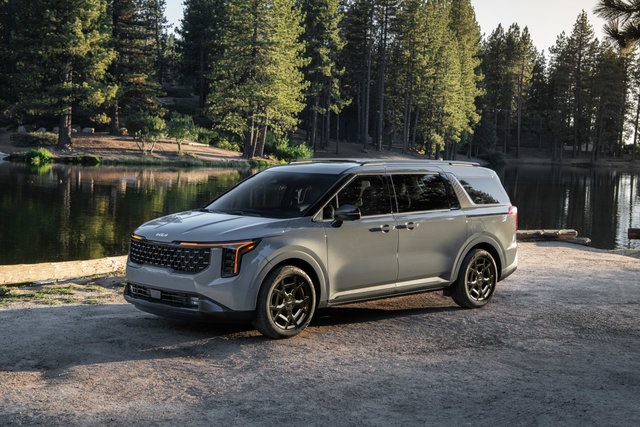Planning a winter getaway to Mont-Tremblant or the Laurentians? Choosing the right SUV can make all the difference when you're packing skis, snowboards, boots, and gear for the whole family. The 2026 Kia Sorento and 2026 Kia Sportage both offer versatile cargo solutions, but their capacities differ significantly depending on your needs. If you're comparing these two popular Kia SUVs for your...

Relocating to Quebec introduces unique automotive considerations that distinguish this province from the rest of Canada. French language information, distinctive insurance structures, and specific provincial regulations create questions for newcomers adjusting to their new environment. Understanding these Quebec-specific elements transforms what initially appears complex into manageable steps toward vehicle ownership.
Each question below addresses real concerns voiced by newcomers during their first months in Quebec. The answers offer practical insights that recognize the challenges and opportunities in Quebec's automotive sector, aiding you in making informed choices that facilitate your successful settlement.
What language requirements affect my Quebec vehicle purchase?
Quebec's Charter of the French Language influences automotive transactions throughout the province. While dealership staff commonly speak both French and English, official documentation defaults to French unless you specifically request English versions. Your purchase contract, warranty information, and registration documents all conform to provincial language legislation.
Insurance policies in Quebec must include French language options, though most insurers provide bilingual documentation for newcomers who prefer English explanations. Your driver's license testing occurs in either French or English based on your preference, eliminating language barriers during the licensing process.
Vehicle financing contracts through institutions like Kia Finance accommodate both language preferences. Your loan documentation, payment schedules, and correspondence can be provided in English throughout your financing term, ensuring clear understanding of your financial obligations.
How does Quebec's insurance system differ from other provinces?
Quebec operates a hybrid insurance model that combines public and private coverage. The Société de l'assurance automobile du Québec (SAAQ) provides mandatory public insurance covering bodily injuries, while private insurers handle property damage and vehicle protection. This dual system affects your premium calculations and coverage decisions.
Your annual SAAQ contribution appears on your driver's license renewal rather than through monthly insurance payments. This public portion costs approximately $88-295 annually depending on your license class and driving record. Private insurance covers collision damage, theft protection, and liability for property damage.
Newcomers benefit from this system because bodily injury coverage remains consistent regardless of your private insurer choice. Your private insurance shopping focuses on property protection and additional benefits rather than medical coverage variations found in other provinces.
Can I exchange my foreign driver's license directly in Quebec?
Quebec maintains reciprocal agreements with specific countries allowing direct license exchanges without testing. Eligible countries include France, Belgium, Switzerland, and several other European nations. Your exchange requires original licensing documents with certified French translations if issued in other languages.
Countries without reciprocal agreements require you to enter Quebec's graduated licensing system. The knowledge examination tests your understanding of Quebec's traffic laws, including unique regulations like mandatory winter tire requirements and specific right-turn restrictions in Montreal.
Processing times for license exchanges vary between six to eight weeks in urban areas like Montreal and Laval. Schedule your appointment early to avoid driving with expired foreign documentation beyond Quebec's 90-day grace period for newcomers.
Are winter tires mandatory in Quebec?
Yes, Quebec law requires winter tires on all passenger vehicles between December 1st and March 15th. These tires must display specific symbols indicating compliance with Transport Canada standards. Failing to equip winter tires during this period results in fines ranging from $200-300.
Quebec's winter tire regulation applies regardless of your vehicle's drive system or your driving frequency. Even vehicles driven occasionally during winter months must comply with this provincial requirement. Your tire selection should prioritize safety performance over cost considerations.
Budget approximately $800-1,400 for a complete winter tire set including installation and seasonal storage. Many Quebec tire retailers and dealerships offer installation packages and storage services that simplify the seasonal transition process for newcomers unfamiliar with winter driving preparations.
What financing options work best for newcomers in Quebec?
Quebec financial institutions follow similar credit evaluation procedures as other Canadian provinces, but some banks offer specialized programs for Quebec newcomers. Desjardins, as Quebec's largest credit union network, provides newcomer-specific financing with flexible qualification criteria and multilingual service.
Manufacturer financing through Kia Finance provides consistent terms across Quebec regardless of your specific location. These programs often include promotional rates that undercut traditional bank offerings, particularly for newcomers with limited Canadian credit history.
Your credit building strategy in Quebec should include securing a Quebec-based credit card, establishing banking relationships with institutions having strong provincial presence, and ensuring your rent and utility payments report to Canadian credit bureaus. This approach accelerates your creditworthiness development for future financing needs.
How much should I budget for vehicle ownership in Quebec?
Quebec's total vehicle ownership costs include several province-specific elements. Your SAAQ registration and licensing fees differ from other provinces, typically costing $300-500 annually depending on your vehicle type and value. Private insurance premiums average $600-900 annually for basic coverage in most Quebec regions.
Fuel costs in Quebec generally remain below national averages due to provincial taxation policies. However, Montreal's urban driving conditions increase fuel consumption compared to suburban or rural driving patterns. Budget approximately $1,200-2,000 annually for fuel based on typical commuting distances.
Maintenance expenses in Quebec include additional considerations like undercarriage treatments to combat road salt corrosion and seasonal tire changes. Reserve $1,500-2,500 annually for routine maintenance, repairs, and seasonal preparations that maintain your vehicle's reliability throughout Quebec's challenging climate conditions.
Should I buy or lease my first vehicle in Quebec?
Your decision depends on several factors specific to your Quebec settlement plans. Leasing provides lower monthly payments and eliminates concerns about winter driving damage to your vehicle investment. Quebec's harsh winters can affect vehicle longevity, making leasing attractive for newcomers concerned about maintenance responsibilities.
Financing builds equity while providing ownership flexibility. You can modify your vehicle for Quebec conditions, drive unlimited distances for exploring your new province, and build assets that contribute to your financial stability in Canada.
Kia Finance lease programs include automatic protection against gap losses if your vehicle suffers damage beyond repair. This coverage proves valuable in Quebec where winter accidents and theft rates in urban areas create financial risks for vehicle owners.
What documentation do I need for vehicle registration in Quebec?
Quebec vehicle registration requires proof of ownership, valid Quebec driver's license, proof of insurance covering both SAAQ and private portions, and payment for registration fees. Your insurance broker typically handles SAAQ requirements during your policy setup.
New residents must register vehicles within 30 days of establishing Quebec residency. This timeline begins when you obtain Quebec health insurance or establish permanent residence rather than your arrival date in the province.
Import documentation becomes necessary if you're bringing a vehicle from another province or country. Quebec requires provincial inspection certificates and potentially modification compliance for vehicles not originally sold in Canada.
Where can I find reliable vehicle service in Quebec?
Quebec's automotive service network includes both independent mechanics and dealership service departments. Kia dealerships throughout Quebec provide warranty service in both French and English, ensuring clear communication about your vehicle's maintenance needs.
Many independent mechanics in Quebec speak both languages and offer competitive pricing for routine maintenance. However, warranty work requires authorized dealership service to maintain your vehicle's coverage validity.
Research service options in your specific Quebec region before purchasing your vehicle. Urban areas like Montreal and Quebec City offer extensive service networks, while rural regions may have limited options requiring longer travel for specialized repairs.
Your Path Forward in Quebec
These answers provide the foundation for your vehicle purchase decisions, but your individual circumstances influence which options align with your Quebec settlement goals. Your employment situation, family needs, and long-term plans all factor into determining your optimal automotive choices.
Ready to transform this knowledge into your Quebec driving reality? Our bilingual team at Lallier Kia Vimont understands the unique aspects of vehicle ownership in Quebec and can guide you through every step of the process, from financing approval to your first winter driving season. Contact us to discover how we make your transition to Quebec roads as smooth as your settlement into this vibrant province.
To learn more about financing a Kia vehicle, visit Kia.ca
Other Articles That May Interest You
The 2026 Kia Sportage Hybrid stands out in Canada's competitive compact SUV segment by delivering fuel efficiency, all-wheel-drive capability, and advanced technology. For eco-conscious drivers in Quebec seeking a practical family vehicle that doesn't compromise on performance or features, the Sportage HEV offers a strong case as Kia's leading compact SUV choice. With its refined hybrid...
Winter driving in Laval brings unique challenges—from icy highways to reduced visibility during snowstorms. The 2026 Kia Carnival Hybrid addresses these conditions with a comprehensive suite of safety technologies designed to protect your family when roads become unpredictable. From advanced collision prevention systems to heated features that maintain clear sightlines, this hybrid minivan...







